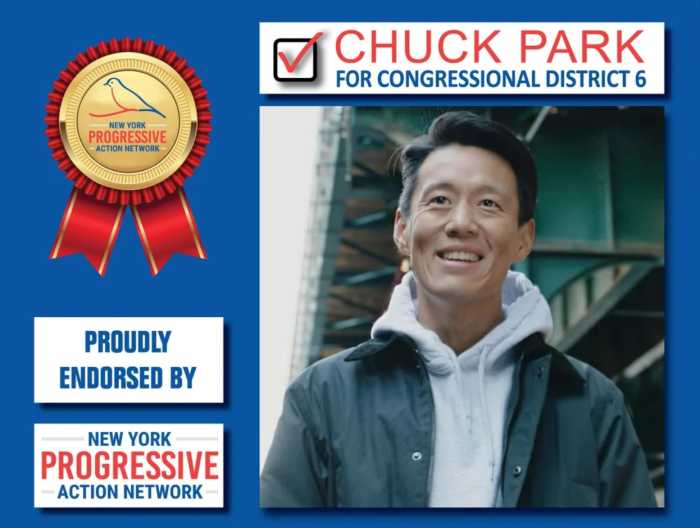Max Hollein currently serves as the Marina Kellen French director and CEO of the Metropolitan Museum of Art. In this role, Hollein is responsible for the leadership of the museum, including its artistic vision and all of its programming, strategic, fiscal and institutional priorities, as well as local engagement and international relations. Hollein earned his master’s degree in art history at the University of Vienna and MBA at the Vienna University of Economics.
Laura Hoptman
Executive Director, The Drawing Center
Laura Hoptman serves as the executive director of the Drawing Center, an exhibition space in SoHo founded in 1977 dedicated to the exploration of the medium of drawing. She joined the Drawing Center after eight years as a curator at the Museum of Modern Art in the Department of Painting and Sculpture, where she began her career in the 1990s as a curator with a specialty in drawing.
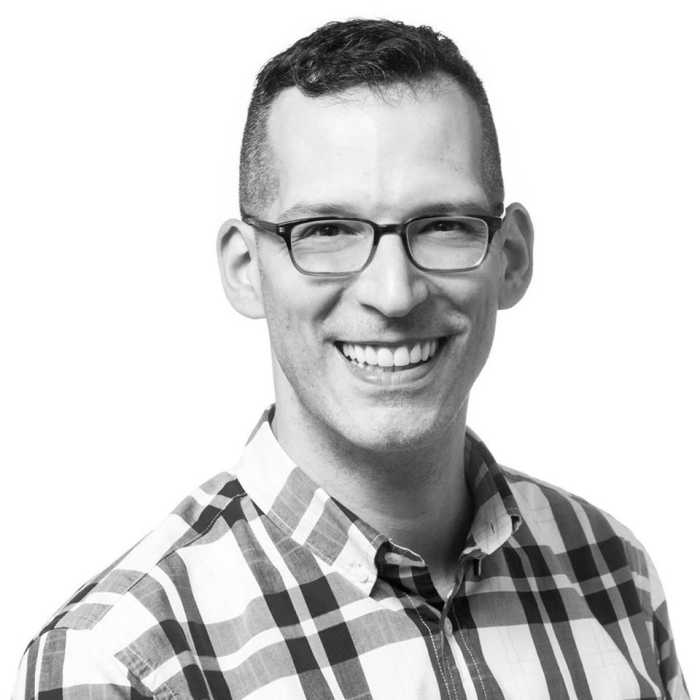
Vincent Iaropoli
Executive Director, CO/LAB Theater Group

Vincent Iaropoli’s diverse background includes leadership roles at Stages on the Sound, Taproot Foundation, and New York University Skirball Center for the Performing Arts. He was a company manager at New York City Opera, and executive assistant to the producer of Disney’s “The Lion King.” Vincent has a BFA from NYU Tisch School of the Arts, an MPA from NYU Wagner Graduate School for Public Service and is working on his Ed.D. in Educational Theater.
Is there anything you are working on that you wish more people knew about?
Absolutely! Later this spring I am producing a tour of “Midsummer Night’s Dream” for parochial schools in the tri-state area with the theater company Stages on the Sound. In May, CO/LAB Theater Group will present “Strange! The Musical,” an original musical devised by and with actors with intellectual and developmental disabilities. And this summer I’m organizing a Forum Theatre workshop at St. Mary Our Lady of Mt. Carmel Church in Mt. Vernon, New York!
What advice do you have for the next generation of people determined to break into the world of arts and culture?
My advice for the next generation is to embrace failure, especially early on. I think that adaptability is key in this dynamic field. Say “yes” to opportunities, as they often lead to unexpected paths. It’s not just about what you produce but how you navigate change. Keep an open mind and seize chances for growth. You never know where the next big opportunity will come from!
What can New York policymakers do to support the continued development of arts and culture in the city?
I think New York is the greatest city in the world and our policymakers can help the arts and culture sector by increasing funding for arts programs, providing affordable spaces for artists and organizations, and implementing policies that promote diversity and accessibility. They can also support arts education in schools, advocate for fair compensation for artists, and foster more partnerships between the public and private sectors to ensure that the city’s cultural landscape can thrive.
If you could attend any event, show, or exhibit in the city tonight, what would it be and why?
If I could attend any event in New York City tonight, it would be “The Diamond” at the People’s Theatre Project (PTP). Shows by PTP are a must-see for anyone who values diversity, social justice, and the power of art to bring about change. PTP empowers youth and communities through theater and social activism. I am excited to see how they are transforming Inwood into a vibrant cultural hub that celebrates the immigrant experience.
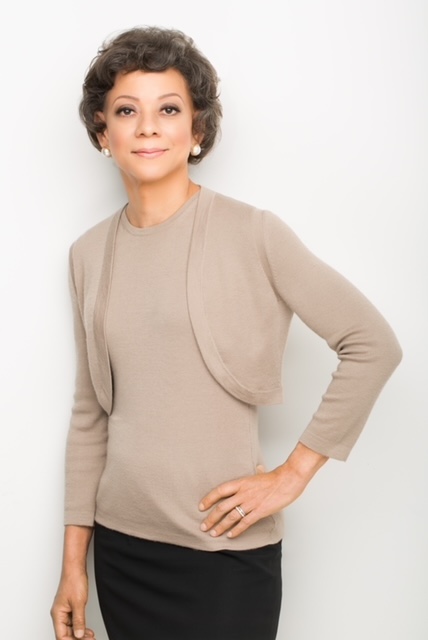
Leah Johnson
Executive Vice President, Chief Communications, Marketing and Advocacy Officer, Lincoln Center for the Performing Arts

Leah Johnson is executive vice president, chief communications, marketing and advocacy officer for Lincoln Center for the Performing Arts. Since 2019, she has helped reach new audiences and led the institution’s ongoing transformation into a place all New Yorkers feel welcome, including by implementing a Choose-What-You-Pay ticketing model. Leah holds a B.A. in psychology from Harvard College. A Brooklyn native, she resides in East Harlem with her husband and daughter.
Is there anything you are working on that you wish more people knew about?
Lincoln Center is underway with our ambitious effort to reimagine the Amsterdam Avenue side of our campus. Amidst ongoing community outreach, our expert team of architects is now creating a design based on feedback from over 3,400 neighbors and New Yorkers. Our goals are to develop a world-class outdoor performance venue and to make the entirety of the Lincoln Center campus more welcoming and accessible for all.
What advice do you have for the next generation of people determined to break into the world of arts and culture?
New York City is the arts and culture capital of the world largely because of the diversity of individuals who comprise it. I encourage this next generation of leaders to consider careers that support all aspects of the arts and culture economy, while leaning into what brings them joy and fuels their passions. In a city as great as New York, there must be space for all art forms and creative points of view.
What can New York policymakers do to support the continued development of arts and culture in the city?
Culture is an essential part of New York City’s vibrancy, and like any public infrastructure, it needs government support. Not only are the arts significant economic drivers, but they are also essential to our city’s collective wellbeing. We are proud to work closely with the City and our partners to expand reach and impact, including through free and Choose-What-You-Pay ticketing, as well as the reimagining of the Amsterdam Avenue side of our campus.
If you could attend any event, show, or exhibit in the city tonight, what would it be and why?
From dreaming of becoming a ballerina to playing the violin at P.S. 208, the arts have always been essential to my life. More recently I’ve begun appreciating the mixing of art and technology, enabling artists to express themselves in new ways and engage different audiences. This summer at Lincoln Center, Nona Hendryx’s “The Dream Machine” will combine the physical and digital worlds through Afrofuturist art, music, and storytelling. I’ll be there, and so should you.
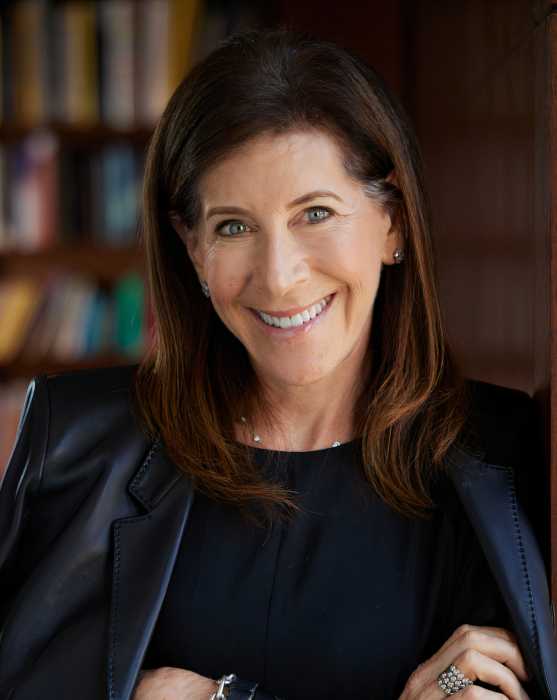
Linda Johnson
President and CEO, Brooklyn Public Library

As president and CEO of Brooklyn Public Library, Linda E. Johnson has led a campaign to update an aging infrastructure to ensure the Library’s 62 buildings are modern inspiring spaces. She oversaw the library’s landmark elimination of fines and a viral campaign to combat censorship, ensuring all Brooklynites have free access to knowledge. In 2023, with Roc Nation, Johnson opened Book of HOV. Over 600,000 people toured the blockbuster exhibition inside the historic Central Library.
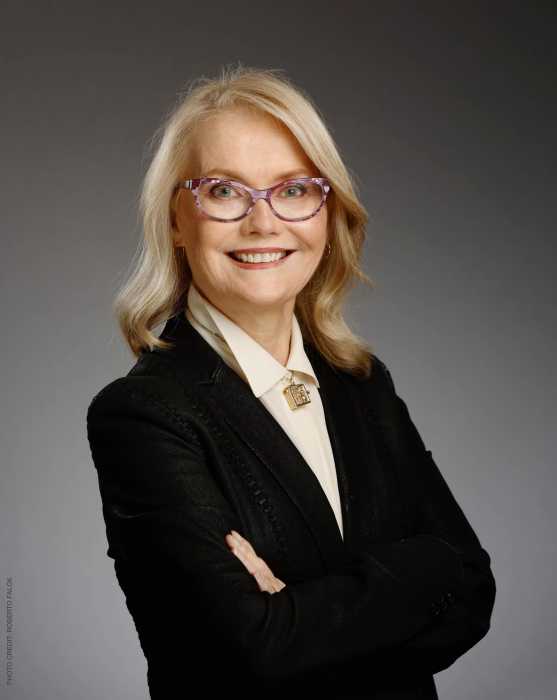
Pat Swinney Kaufman
Commissioner, Mayor's Office of Media and Entertainment

As Commissioner, Pat Swinney Kaufman oversees the agency’s mission to support and strengthen New York City’s creative sectors and make them accessible to all. Kaufman brings a wealth of experience in economic development having served for 19 years at the New York State Governor’s Office for Motion Picture and Television Development and as deputy commissioner of Empire State Development. There, she helped craft and shepherd the first New York State Film Production Tax Credit.
Is there anything you are working on that you wish more people knew about?
Our Made in NY training programs and career panels connect New Yorkers to skills and jobs in film, TV, music, theatre and digital sectors. Our permitting office is expanding on Mayor Adams’ vision to be a “City of Yes,” and helping productions film on NYC streets. Our credentialing office is working to permit press members for events. Our network, NYC Media, broadcasts content to educate and entertain New Yorkers. More information is available at nyc.gov/MOME.
What advice do you have for the next generation of people determined to break into the world of arts and culture?
Take advantage of every opportunity that comes to build your resume and expand a network of supporters and colleagues. You never know where your first or next job will come from. People in your network can speak to your work ethic, can champion you to their teams, and be the bridge to your next gig or dream job. Enrolling in one of the city’s many workforce training programs or internships is a good first step.
What can New York policymakers do to support the continued development of arts and culture in the city?
To affect policy we need evidence of what works, stronger public-private sector partnerships and to listen to the theatre operators and vendors who are living through these tough times. The recently created Theatre and Live Entertainment Industry Council is doing just that; developing City budget scenarios, exploring affordable housing for workers and accessibility for viewers, and expanding workforce development programs, all to ensure the sector and the stories told reflect the diversity of our city.
If you could attend any event, show, or exhibit in the city tonight, what would it be and why?
One of the pleasures of living in New York is being able to bump into a production being filmed on our streets. If I could, I would be spending the day on set watching the production teams and talent create the wonderful art they do while showcasing the beauty that is New York City! Oh, and I’d love to check out “Tango Untangled” at Teatro Circulo on April 12, part of Teatro Fest NYC 2024!
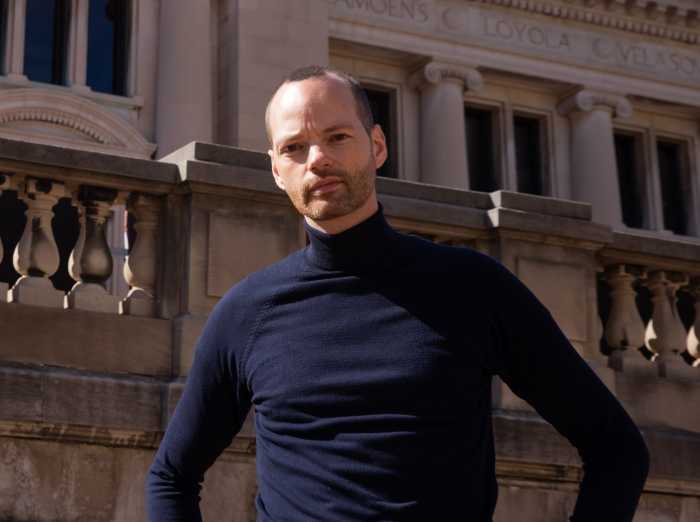
Guillaume Kientz
CEO and Director, The Hispanic Society Museum and Library

Guillaume Kientz currently serves as CEO and director of the Hispanic Society Museum and Library and is spearheading the museum’s restoration and renovation efforts to bring the historic institution into the present day. At the Louvre, he served as a curator in the department of paintings for eight years with a focus on Spanish, Portuguese and Latin American painting. Previously, he was curator of European Art at the Kimbell Art Museum in Texas.
Is there anything you are working on that you wish more people knew about?
What I am passionately working on and hope more people discover is showcasing the Upper Manhattan neighborhood as one of New York’s gems, rich in beauty, history, and creativity. I want to highlight the vibrant energy and cultural depth here, including the numerous museums, historic houses, and art centers that make this area so unique.
What advice do you have for the next generation of people determined to break into the world of arts and culture?
To the next generation, I offer this advice: Immerse yourselves in art in its physical form whenever possible. Approach it with an open mind, free from preconceptions. Train your sensitivity to its nuances, allow its beauty to inspire you, and always balance your emotional responses with critical thinking.
What can New York policymakers do to support the continued development of arts and culture in the city?
I believe New York policymakers can further support the arts by ensuring that investment and resources are not concentrated solely in established cultural hubs. By providing infrastructural and promotional support to diverse neighborhoods, they can help showcase the untapped creativity and perspectives that enrich our city’s cultural landscape.
If you could attend any event, show, or exhibit in the city tonight, what would it be and why?
If given the choice, I would attend the after-party of an emerging artist’s opening. These events are not just about celebrating talent but also witnessing the birth of artistic dreams and fears. It’s a moment of pure artistic energy and community support that sets the stage for incredible future achievements.
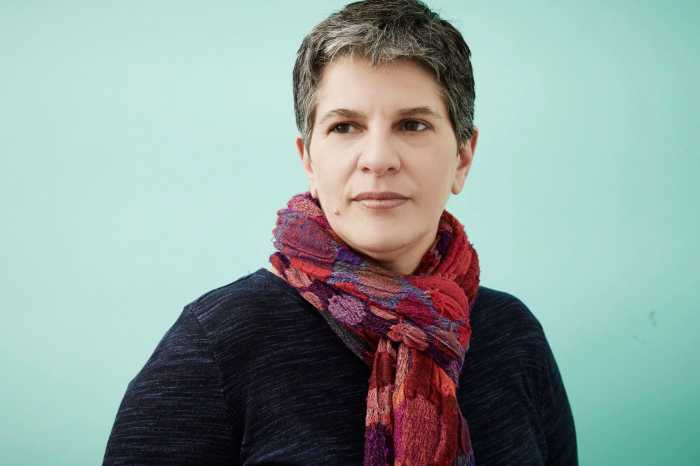
Lesli Klainberg
President, Film at Lincoln Center

Lesli Klainberg is the president of Film at Lincoln Center (FLC), a nonprofit organization that celebrates cinema as an essential art form. Lesli is an award-winning producer and director whose documentaries have screened at film festivals such as Berlin, Sundance, Outfest and Frameline, and have been broadcast on AMC, A&E, IFC, WE and PBS. Prior to her current role, Lesli served as FLC’s managing director and producer of the New York Film Festival. She also served as executive director of NewFest, the NYC LGBT Film Festival.
Is there anything you are working on that you wish more people knew about?
Film at Lincoln Center is open every day, and we present first-run films, series, and festivals in our state-of-the-art theaters. Our biggest, most visible event is the annual New York Film Festival which is one of the oldest film festivals in the United States. This fall we are presenting our 62nd edition! A lot of behind-the-scenes work goes into planning and producing an event of this size, and it’s an exciting process that leads to the reward of experiencing the electricity of audiences enjoying some of the best films of the year, in a theater together.
What advice do you have for the next generation of people determined to break into the world of arts and culture?
Take advantage of NYC and go to as many screenings, concerts, museums, and other cultural events as you can. Many organizations offer free or discounted tickets. In the summer, we have free outdoor screenings at Damrosch Park as part of the campus-wide Festival for the City program. Volunteer for a festival or organizations that you’re passionate about and meet as many people as you can!
What can New York policymakers do to support the continued development of arts and culture in the city?
Art is what makes us human and we all need it in our lives. The simple answer, we need more funding. Nonprofit arts organizations need the financial support of the state and city to thrive and nurture artists. The arts, in turn, whether theater, dance, music, or film, help drive the economic engine of the city. If art and culture were also better integrated into the core curriculum in all of our schools, we would be preparing our students to be both artists and audiences. According to a 2019 NYC comptroller report, the cultural economy generates an estimated $110 billion in economic activity in NYC. Arts funding also has a multiplier effect. For example, New York City Tourism + Conventions reports that in 2023, employment in the arts and culture sector grew by 7% year over year. An investment in the arts is an investment in the city’s economic health.
If you could attend any event, show, or exhibit in the city tonight, what would it be and why?
I would probably run over to see a film at my local art house movie theater, BAM Cinema. It’s a great cinema and I can walk there from my house and get something to eat before or afterward. Explore your local art institutions!

Jack Kliger
President and CEO, Museum of Jewish Heritage

Jack Kliger’s impressive media career included roles as publisher of GQ Magazine and Glamour, executive vice president of Condé Nast and Parade Publications, and president and CEO of Hachette Filipacchi Media U.S. He served over a decade on the museum’s board of trustees before becoming its president and CEO in 2019. He has received Lifetime Achievement Awards from Magazine Publishers of America and the Anti-Defamation League. Kliger is the son of Polish and Hungarian Holocaust survivors.
Is there anything you are working on that you wish more people knew about?
Our Museum regularly receives questions from school teachers and students about historical and contemporary antisemitism. As these questions have steadily increased since the attacks of October 7, 2023, and as antisemitism and other forms of bigotry continue to surge, our education department developed a new Antisemitism Resource to provide helpful answers, guidance, and historical background. We launched the resource in March 2024 and welcome feedback from schools and educators: https://education.mjhnyc.org/antisemitism
What advice do you have for the next generation of people determined to break into the world of arts and culture?
I encourage young professionals to get comfortable having face-to-face meetings and phone conversations. Do not rely too heavily on texting and e-mail. I have found live discussions are the most conducive to inspired brainstorming, effective problem-solving, and relationship cultivation. Relationships are everything in this business — and good for the soul.
What can New York policymakers do to support the continued development of arts and culture in the city?
It is essential we prioritize and safeguard arts and culture within middle and high school curricula. The study of these subjects, and the provision of teacher training and professional development to educators, ensures our students grow to become the next generation of arts patrons and audiences who will be key to our sector’s success. I also encourage the continued development of public transportation to make more accessible the cultural institutions that exist beyond midtown Manhattan.
If you could attend any event, show, or exhibit in the city tonight, what would it be and why?
I tell everyone to come experience our Museum’s newest exhibition, “Courage to Act: Rescue in Denmark.” Its lessons about mutual aid, collective action, and summoning moral courage to do the right thing have never been more timely or relevant.
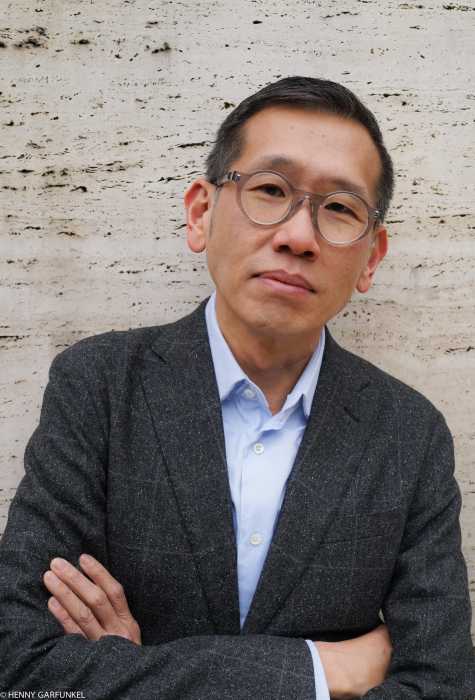
Dennis Lim
Artistic Director, New York Film Festival at Film at Lincoln Center

Dennis Lim is the artistic director of the New York Film Festival (NYFF) at Film at Lincoln Center. He served as the film editor of The Village Voice from 2000-2006 and was a regular contributor to the New York Times from 2006-2013. The author of the critical biography “David Lynch: The Man From Another Place” (New Harvest/Houghton Mifflin Harcourt, 2015), he has written for the New York Times, the Los Angeles Times, Artforum, Cinema Scope, and Slate, among other publications, and taught at the department of visual and environmental studies at Harvard and the cultural reporting and criticism graduate program at New York University’s Arthur L. Carter Journalism Institute.
Is there anything you are working on that you wish more people knew about?
Most of the year, my work is not visible to our public. With the New York Film Festival’s team of programmers and advisors, I am working on the lineup for the next festival. This is a year-round endeavor that involves a lot of viewing, some travel, and ongoing conversations with filmmakers, producers, distributors, and colleagues in the U.S. and around the world. I also work closely with Matt Bolish, managing director of the NYFF, and other members of our team on operational and logistical matters. I am not sure that this work is something the general public necessarily needs to know more about, but it’s always deeply gratifying when the audience comes out to see the results at the film festival every fall. For us, the work of programming is only complete when audiences, films, and filmmakers come together for a communal experience that only the cinema can provide.
What advice do you have for the next generation of people determined to break into the world of arts and culture?
Get out and consume as much art as you can, in all forms. New York remains one of the richest cities in the world, culturally speaking, and you could not ask for a better training ground. Especially when starting out, I would avoid the temptation to over-specialize – the areas where different disciplines and art forms converge and overlap are often spaces of great, untapped possibilities.
What can New York policymakers do to support the continued development of arts and culture in the city?
Supporting artists is essential to the city’s cultural ecosystem. Whether through affordable housing, workspaces, grants or exhibition opportunities, creating an environment where artists and cultural workers can sustainably live and work is crucial.
If you could attend any event, show, or exhibit in the city tonight, what would it be and why?
One of my favorite festivals, New Directors/New Films, is on right now. This is a long running collaboration between Film at Lincoln Center and MoMA’s Department of Film, and for several decades now, the most reliable showcase of emerging talent, and a barometer of the art form’s present and future.





